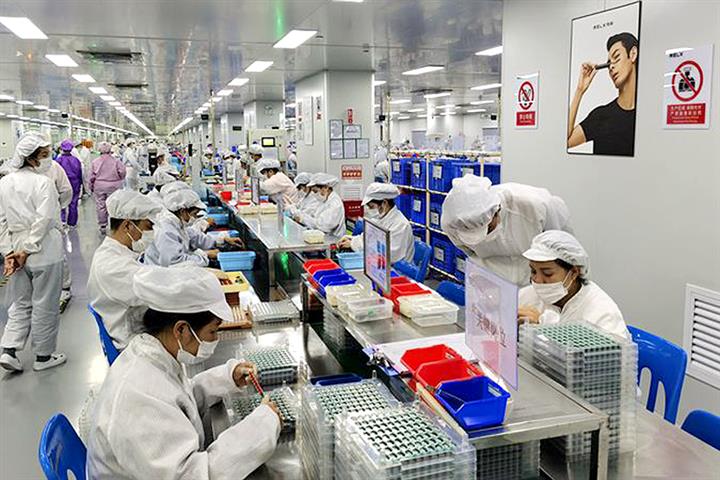 Chinese Vaping Firms Eye SE Asia as Gov't Tightens Rules at Home
Chinese Vaping Firms Eye SE Asia as Gov't Tightens Rules at Home(Yicai Global) March 31 -- Several Chinese e-cigarette firms are considering moving production to Southeast Asia as the domestic regulatory environment is becoming stricter.
Some 20 companies, including industry leaders, have already relocated some plants to Southeast Asia since late 2021, the Electronic Cigarette Industry Committee at the China Electronics Chamber of Commerce said to Yicai Global recently.
Last December, the tobacco regulator proposed new rules to rein in the booming vaping sector via controlled sales channels and warnings on the packaging. But the exact production permit requirements and taxation remain uncertain.
Relocations would be likely to cause a brain drain, Liu Qi, an industry participant, said to Yicai Global. And once certain leading producers leave, other parts of the supply chain may follow suit, Liu added.
Most of those who want to relocate are electronic cigarette manufacturers, said the expert. Under the current policy, these firms need to apply for approvals before adding equipment or developing new technologies, two key factors they rely on for profit. This means risks, Liu added.
Mainstay Guangdong Biotechnology, which owns vaping brands such as Leme and SmokeTalk, is thinking about moving production overseas even though it recently opened a new plant in southern China's Dongguan, said Chairman Wang Jin. Nearly 90 percent of China's e-cigarette firms are located in Dongguan or Shenzhen.
The changing rules are making manufacturers open their eyes to new opportunities. The reshaped policies are not clear yet so the future of production and exporting is uncertain, said Wang.
Meanwhile, other countries are lowering their threshold for newcomers. Some industrial parks in Southeast Asia have recently introduced some favorable policies such as exempting foreign firms from import taxes on equipment and raw materials as well as eliminating export taxes for 10 years to lure more companies to set up shop, said Wang.
One of the destinations could be Laos. Vientiane Saysettha Development Zone has recently received inquiries from two to three e-cigarette firms about local policies, said Xu Lu, investment director. Labor costs are low in Laos, and the export tax is nearly zero, she added.
But relocation would come with some downsides. Domestic workers would lose their jobs and manufacturers might have a hard time protecting their intellectual property, according to Wang.
China had more than 1,500 e-cigarette manufacturers and brands, as well as nearly 100,000 suppliers as of last year, according to the above-mentioned industry association. In 2021, the country's vaping exports tallied CNY138.3 million (USD21.8 million), almost tripling from a year earlier. The biggest markets were the United States, the European Union, and Russia.
Editors: Zhang Yushuo, Emmi Laine, Xiao Yi